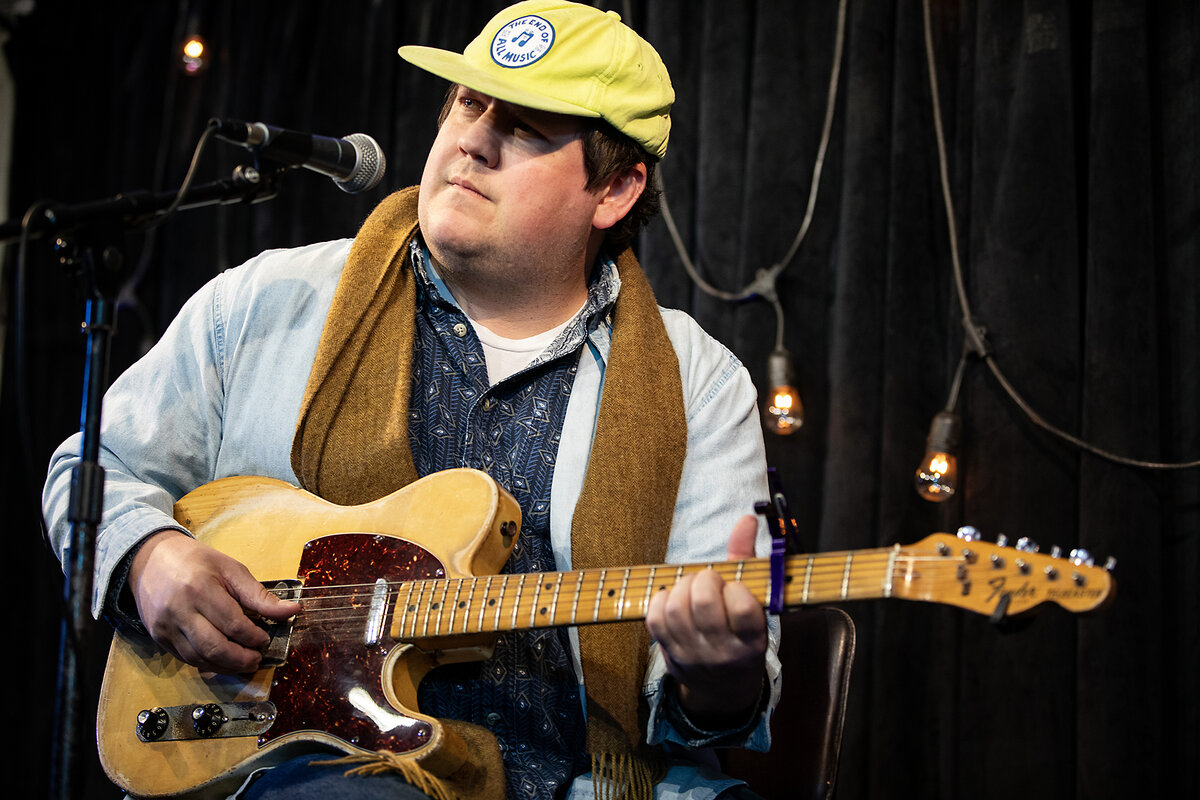Heading into the Republican nominating convention next week, the Democratic Party is still roiled over whether to rally behind the president or quickly find a replacement. Thursday’s press conference didn’t settle the matter.

Why is Christian Science in our name?
Our name is about honesty. The Monitor is owned by The Christian Science Church, and we’ve always been transparent about that.
The Church publishes the Monitor because it sees good journalism as vital to progress in the world. Since 1908, we’ve aimed “to injure no man, but to bless all mankind,” as our founder, Mary Baker Eddy, put it.
Here, you’ll find award-winning journalism not driven by commercial influences – a news organization that takes seriously its mission to uplift the world by seeking solutions and finding reasons for credible hope.
Explore values journalism About usMonitor Daily Podcast
- Follow us:
- Apple Podcasts
- Spotify
- RSS Feed
- Download
 Mark Sappenfield
Mark Sappenfield
Not so long ago, I wrote about the Abortion Talks. When the abortion debate became violent in Massachusetts, six women leaders on both sides came together to find a way to talk. They did, for more than half a decade.
The series chronicling the Abortion Talks and the situation around them is now on Prime Video and Apple TV. You can see it here.
What’s interesting is that the women found little common ground. In fact, they might be firmer in their viewpoints now. But they built genuine friendships and understanding. It’s a powerful lesson not only for America, but for the world.
Already a subscriber? Log in
Help fund Monitor journalism for $11/ month
Monitor journalism changes lives because we open that too-small box that most people think they live in. We believe news can and should expand a sense of identity and possibility beyond narrow conventional expectations.
Our work isn't possible without your support.
Today’s stories
And why we wrote them
( 5 min. read )
Today’s news briefs
• Gaza pier to close: The U.S. military’s humanitarian pier off the coast of Gaza, which has been hampered by bad weather and aid distribution problems, will shut down soon.
• Ukraine aid: The United States announces a new security package for Ukraine worth $225 million.
• Israel security report: The Israeli military publishes the findings of a first probe into its own security failings during the Oct. 7 Hamas attack.
( 6 min. read )
The White House press corps has been criticized for lack of transparency around President Joe Biden’s mental faculties. But it’s a hard story to cover, given limited access and sensitivity about ageism.
( 4 min. read )
The NATO summit’s communiqué said Ukraine was on an “irreversible” path to membership. It was a dramatic step that managed to annoy Russia even as it disappointed France and fell short of everything Volodymyr Zelenskyy had hoped for.
( 7 min. read )
( 5 min. read )
With the Paris Olympics set to start soon, the city’s homeless people are being shunted out of sight. Will Paris break the Olympic tradition of failing to improve the lot of the host city’s most vulnerable residents?
A deeper look
( 15 min. read )
America has a rich tradition of folk music. Jake Xerxes Fussell breathes new life into this legacy as one of the country’s leading folk musicians.
The Monitor's View
( 3 min. read )
There are about twice as many known varieties of apples worldwide as there are of clams – 30,000, give or take. Fewer than 40 of these – Fuji, Honeycrisp, and so on – dominate global commercial markets. What, then, accounts for the restless pursuit in university labs and orchard nurseries to revive heirlooms long thought extinct?
One answer, of course, is climate change. Next year marks the midpoint in the United Nations Decade on Ecosystem Restoration, a global initiative challenging governments and individuals to renew the planet’s natural systems and resources. If an apple is found that no one has ever seen before – as one was in Colorado a few years ago – it means a tree has survived for perhaps a century or more. It may hold clues for adapting other varieties to changing weather patterns.
Yet from the steppes of Kazakhstan to the shallow estuaries of Florida, projects to revive wild horses and seagrasses are affecting something deeper – a restoration of thought in an age steeped in uncertainty.
“The benefit of a 100-year vision is that it begins with an assumption of success, allowing us to imagine how something can be and will be done rather than debating whether it’s possible,” wrote Florent Kaiser, executive director of Global Forest Generation, in a World Economic Forum blog. “Planting trees transcends carbon offsetting; it’s an act of hope for future life.” It reflects “a commitment to work together for the common good.”
One reason the effect Mr. Kaiser describes may be so noticeable is that restoration projects often respond to factors like overexploitation of resources and political instability. Community-led forestry projects in South America, Nepal, and Pakistan have involved the planting of tens of millions of trees. By tapping the ecological expertise of marginalized Indigenous communities, they affirm values like equality and individual dignity.
Boosting ecosystems is also boosting democracy. An annual survey by the National Wildlife Federation and the National Gardening Association published last month confirmed a growing shift from lawns to native wildflowers. People who garden for bees and butterflies, studies have shown, are more apt to know their neighbors and participate in local civic activities.
Their gardens may be more collectively empowering than they know. A study led by the University of Massachusetts Amherst showed that climate change is accelerating the spread of invasive species 1,000 times faster than of native species critical to local environmental stability. Yet Doug Tallamy, an entomologist at the University of Delaware, points to the potential for individual agency. He noted in a recent podcast that 83% of land across the United States is privately owned.
“Some people argue about the word restoration,” he said. But planting native species restores “interactions between the plants and animals” that contribute to environmental health and stability. “You’re still recreating the ecosystem function.”
That’s not as dry as it sounds. As director of horticulture at the New England Botanic Garden in Massachusetts, Mark Richardson is attempting to restore a peck’s worth of heirloom apple varieties along with the American chestnut. “‘When you operate a botanic garden, you hope that it’s here in perpetuity,’ he said, and you work with that horizon in mind,” The New York Times reported last week. Such thought rises, like birdsong.
A Christian Science Perspective
Each weekday, the Monitor includes one clearly labeled religious article offering spiritual insight on contemporary issues, including the news. The publication – in its various forms – is produced for anyone who cares about the progress of the human endeavor around the world and seeks news reported with compassion, intelligence, and an essentially constructive lens. For many, that caring has religious roots. For many, it does not. The Monitor has always embraced both audiences. The Monitor is owned by a church – The First Church of Christ, Scientist, in Boston – whose founder was concerned with both the state of the world and the quality of available news.
( 3 min. read )
Listening to the peace-filled messages that God is always giving us brings progress to our lives.
Viewfinder

A look ahead
Thank you for spending time with us this week. Among the stories we will be following next week are the Republican National Convention, where Donald Trump arrives in perhaps his strongest position ever, and the evolution of U.S. Supreme Court Justice Amy Coney Barrett, who appears to be putting some daylight between herself and the other conservative justices.









